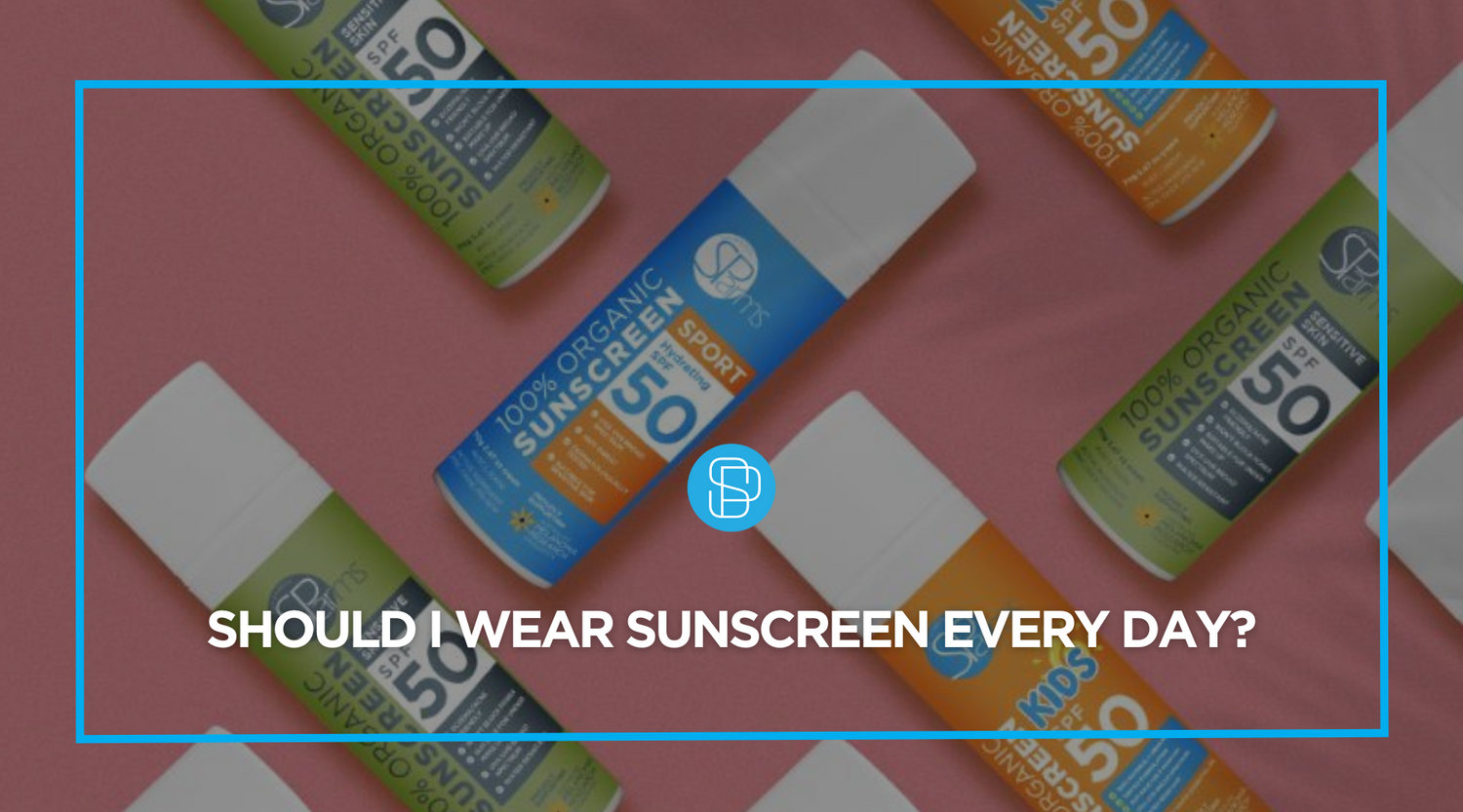When it comes to skincare, one question often arises: "Should I wear sunscreen every day?" The answer is a resounding yes. Sunscreen is one of the most important tools you can use to protect your skin from harmful UV and UB rays, prevent skin damage, and reduce your risk of skin cancer. Whether it’s sunny, cloudy, or even wintertime, UV rays can still penetrate your skin, causing long-term harm. So, let's explore what sunscreen does, when and how often you should apply it, the difference between chemical and physical sunscreens, and how it helps protect against skin damage and skin cancer.
What Does Sunscreen Do?
Sunscreen acts as a protective barrier between your skin and the sun’s harmful ultraviolet (UV) radiation. UV rays can cause skin damage, leading to premature aging, sunburn, and most seriously, skin cancer, including melanoma. Sunscreen works by absorbing or reflecting these rays, preventing them from penetrating your skin and causing cellular damage.
How Often Should I Apply Sunscreen?
It’s recommended that you apply sunscreen every day, regardless of the weather. UV rays can still reach your skin through clouds and windows, making it essential to wear sunscreen even on overcast days or when you’re indoors but near a window.
For optimal protection:
- Apply sunscreen 30 minutes before going outdoors to allow it to absorb into your skin.
- Reapply every two hours, especially if you're sweating or swimming.
- Don’t forget often-overlooked areas such as your ears, neck, and the tops of your feet.
Chemical vs. Physical Sunscreens: What’s the Difference?
There are two main types of sunscreens: chemical and physical (also known as mineral sunscreen). Understanding the difference can help you choose the right option for your skin type and lifestyle.
-
Chemical Sunscreen
Chemical sunscreens contain organic (carbon-based) compounds that absorb UV rays, convert them into heat, and release them from the skin. These sunscreens tend to be lightweight and invisible on the skin, making them a popular choice for everyday use. However, some chemical sunscreens may contain ingredients that can irritate sensitive skin or harm coral reefs. -
Physical (Mineral) Sunscreen
Physical sunscreens, such as SParms 100% Organic Sunscreen, use natural minerals like zinc oxide or titanium dioxide to reflect UV rays off the skin. These sunscreens sit on top of the skin rather than being absorbed, providing an immediate barrier against UV radiation. Physical sunscreens are often recommended for people with sensitive skin and are typically reef-safe, making them an environmentally friendly option.
What Does SPF Mean and Why Is It Important?
SPF, or Sun Protection Factor, is a measure of how well sunscreen protects your skin from UVB rays, the main cause of sunburn and skin cancer. The higher the SPF, the more protection it offers:
- SPF 30 blocks around 97% of UVB rays.
- SPF 50 blocks about 98%.
It’s important to note that no sunscreen blocks 100% of UV rays, which is why reapplication and additional sun protection methods are crucial.
How Does SPF Help Prevent Skin Damage and Skin Cancer?
By blocking or reflecting UV rays, sunscreen prevents the deep penetration of radiation into your skin that causes cellular damage. Long-term exposure to UV rays without protection can result in premature aging, dark spots, wrinkles, and a significantly increased risk of skin cancer, including melanoma.
Skin Cancer Australia reports that approximately two in three Australians will be diagnosed with skin cancer by the age of 70, making it a prevalent concern. Daily use of sunscreen, particularly one with a high SPF, can drastically reduce your risk of developing skin cancer, as well as help prevent sunburn and skin damage.
Protecting Your Skin with SParms 100% Organic Sunscreen
For those who want the best in sun protection without compromising on environmental and ethical values, SParms 100% Organic Sunscreen is the ideal solution. Made from premium organic ingredients and SPF 50, it provides maximum protection against harmful UV rays while being gentle on your skin.
Here’s why SParms 100% Organic Sunscreen stands out:
-
100% Organic Ingredients:
Formulated with premium, natural components to nourish your skin while protecting it from UV damage. -
Zinc Oxide for Maximum Protection:
Zinc oxide is a natural mineral that acts as a physical barrier against UV rays, reflecting them off your skin. -
Cruelty-Free and Reef-Safe:
Our sunscreen is not only effective but also environmentally friendly. It’s reef-safe, ensuring that it doesn’t harm coral reefs or marine life, and it’s cruelty-free, so you can feel good about using it. -
Non-Comedogenic:
Our sunscreen won’t clog your pores, making it suitable for all skin types, including those prone to acne or irritation. -
Dermatologically Tested:
Safe for even the most sensitive skin, including that of infants and children. -
Lightweight and Gentle:
SParms sunscreen is non-greasy and easy to apply, ensuring a smooth, comfortable finish for everyday use.
With SParms 100% Organic Sunscreen, you can enjoy the sun with peace of mind, knowing you’re fully protected from UV rays while being kind to the environment.
Conclusion
Yes, you should absolutely wear sunscreen every day! Whether it’s sunny or cloudy, indoors or outdoors, UV rays can still cause significant skin damage over time. By incorporating sunscreen into your daily routine and reapplying it regularly, you can effectively protect your skin from harmful UV rays, reduce your risk of sunburn, and most importantly, lower your chances of developing skin cancer.
With a range of sunscreens available, choosing the right one for your skin type and environmental concerns is key. SParms 100% Organic Sunscreen offers powerful protection with an eco-friendly, cruelty-free formula, giving you the confidence to step outside, knowing your skin is safe.
